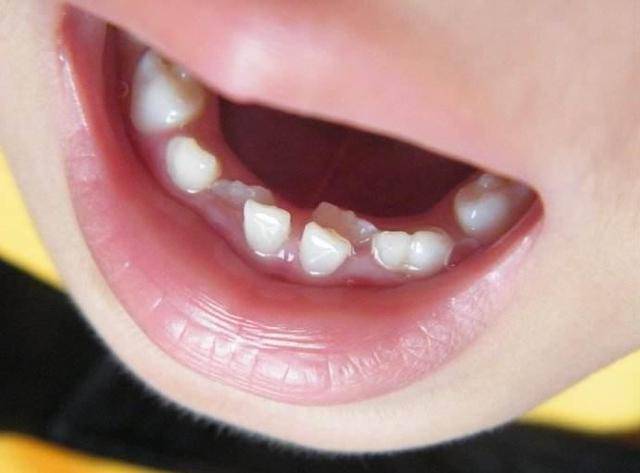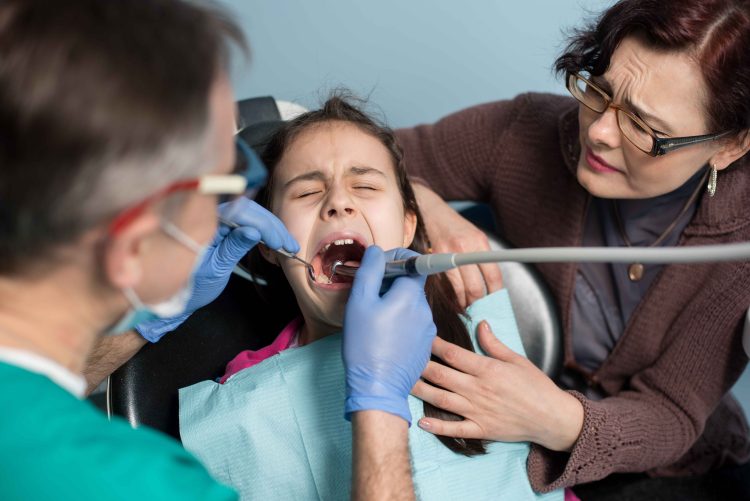In the realm of pediatric dentistry, the mention of wisdom teeth often conjures up images of discomfort, surgery, and a general sense of dread among both parents and children. Wisdom teeth, also known as third molars, are the last teeth to erupt in the human mouth, typically appearing between the ages of 17 and 25. However, when it comes to children, the conversation about wisdom teeth can begin much earlier, focusing on preventive measures to avoid potential complications in the future. This comprehensive guide aims to educate parents on the importance of early intervention and proactive care to mitigate wisdom tooth issues in their children.

Understanding Wisdom Teeth Development
Wisdom teeth develop within the jawbone, much like other teeth. However, due to the evolution of the human skull, which has become smaller over time, there often isn’t enough space for these molars to erupt properly. This lack of space can lead to a variety of issues, including impaction, where the tooth is partially or completely trapped within the jawbone or gum tissue. Impacted wisdom teeth can cause significant discomfort, infections, cyst formation, and even damage to adjacent teeth and bones.
Moreover, the angle of wisdom teeth eruption can vary widely. Some teeth may try to erupt at an angle, pressing against adjacent teeth and causing misalignment or overcrowding in the dental arch. This can compromise oral health and aesthetics, necessitating orthodontic intervention.
Early Detection and Monitoring
The key to preventing wisdom tooth complications lies in early detection and continuous monitoring. Pediatric dentists recommend regular dental check-ups starting from infancy to keep track of dental development, including the emergence of wisdom teeth. X-rays, particularly panoramic films, are invaluable tools in assessing the position, angle, and development stage of wisdom teeth.
During these visits, dentists can identify potential problems early on and develop a personalized treatment plan. For instance, if X-rays reveal that a child’s jaw is too small to accommodate fully developed wisdom teeth, early extraction may be recommended to prevent future complications.
Benefits of Early Extraction
Early extraction of wisdom teeth, particularly in adolescents or young adults, can offer several benefits:
- Ease of Procedure: Younger patients typically have less developed jaw bones and softer tissue, making the extraction process less invasive and faster. Recovery time is also shorter compared to adults.
- Prevention of Impaction: By removing wisdom teeth before they fully develop or become impacted, patients can avoid the pain, swelling, and infection often associated with impacted wisdom teeth.
- Maintenance of Dental Alignment: Early extraction helps prevent wisdom teeth from pushing against adjacent teeth, causing crowding, misalignment, or the need for extensive orthodontic treatment later in life.
- Reduced Risk of Cyst Formation: Impacted wisdom teeth can sometimes lead to the formation of cysts, which can damage surrounding bone and teeth if left untreated. Early removal minimizes this risk.
- Cost-Effectiveness: Addressing wisdom teeth issues early can be more cost-effective in the long run, as it may prevent the need for more complex treatments, such as surgery or additional orthodontic work.
Non-Surgical Preventive Measures
While early extraction is a common and effective solution, not all children will require it. In some cases, non-surgical preventive measures can be employed to manage wisdom teeth development:
- Space Maintenance: Ensuring adequate space in the dental arch through orthodontic interventions like spacers or expanders can help accommodate wisdom teeth.
- Regular Monitoring: Close monitoring with periodic X-rays allows dentists to track the wisdom teeth’s development and make timely decisions about intervention.
- Oral Hygiene: Maintaining excellent oral hygiene practices can reduce the risk of infection and gum disease, which can complicate wisdom tooth issues.
- Diet and Nutrition: A balanced diet rich in calcium and vitamins supports healthy tooth and bone development, potentially influencing the eruption pattern of wisdom teeth.
Discussing Options with Your Pediatric Dentist
Every child’s dental development is unique, and the decision regarding wisdom teeth should be made in consultation with a qualified pediatric dentist or oral surgeon. During these consultations, parents should:
- Ask Questions: Don’t hesitate to inquire about the benefits and risks associated with different treatment options.
- Request Detailed Explanations: Understand the reasons behind any recommended procedures and what the long-term outcomes might be.
- Discuss Concerns: Share any concerns or fears you have about your child’s dental health and the proposed treatments.
- Consider Second Opinions: If in doubt, seeking a second opinion can provide additional insights and reassurance.
Preparing for and Managing Extraction
If early extraction is deemed necessary, parents and children can prepare for the procedure by:
- Following Pre-Operative Instructions: Adhering to any dietary restrictions, taking prescribed medications, and arranging for post-operative care.
- Addressing Anxiety: Discuss anxiety management techniques with your dentist, such as sedation options, to ensure a comfortable experience for your child.
- Post-Operative Care: Understand and follow the post-extraction care instructions to facilitate healing and minimize discomfort.
Long-Term Follow-Up
Even after wisdom teeth extraction, regular dental check-ups are crucial to monitor the overall oral health of your child. These visits allow for early detection and treatment of any potential issues, ensuring lifelong dental well-being.
Conclusion
Preventing wisdom tooth issues in children requires a proactive, multi-faceted approach involving early detection, continuous monitoring, and timely intervention. By partnering with a skilled pediatric dentist and understanding the various treatment options, parents can take proactive steps to safeguard their children’s oral health, avoiding the discomfort and complications often associated with wisdom teeth. Remember, the key to successful prevention lies in informed decision-making and proactive care.













































Discussion about this post